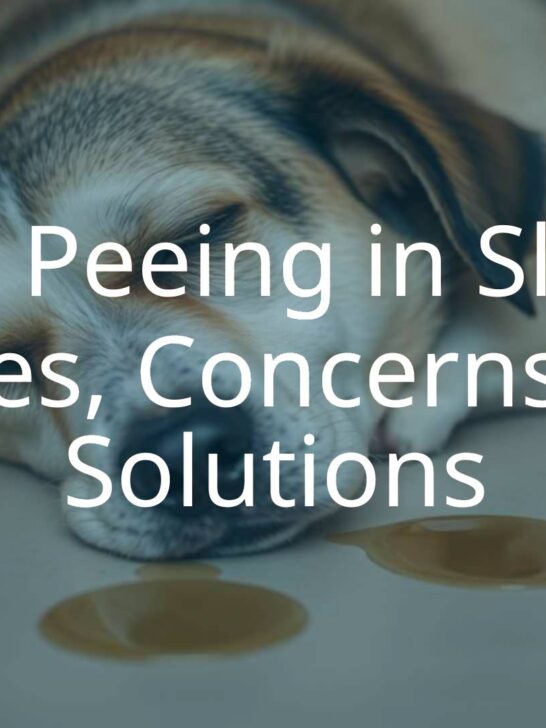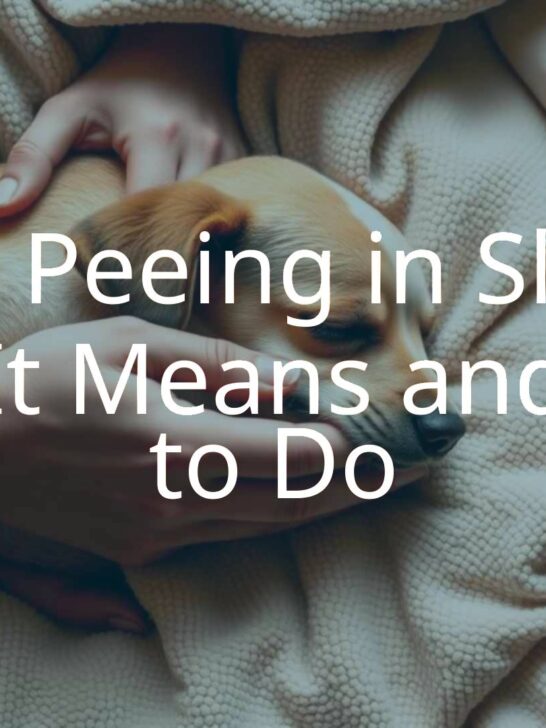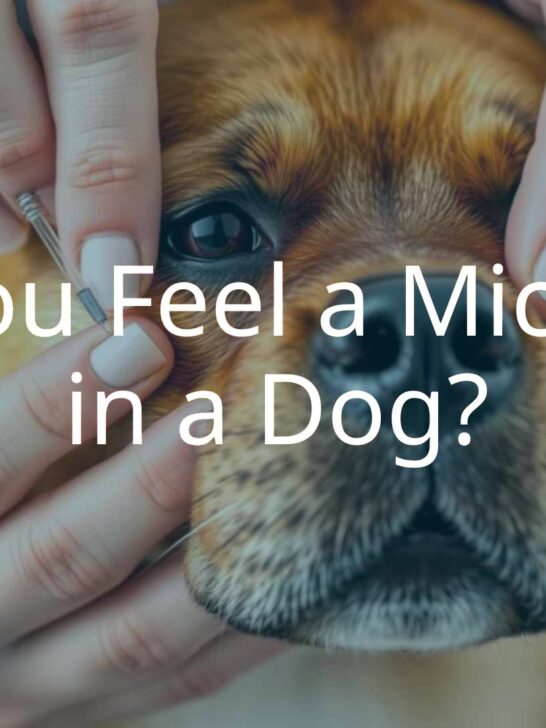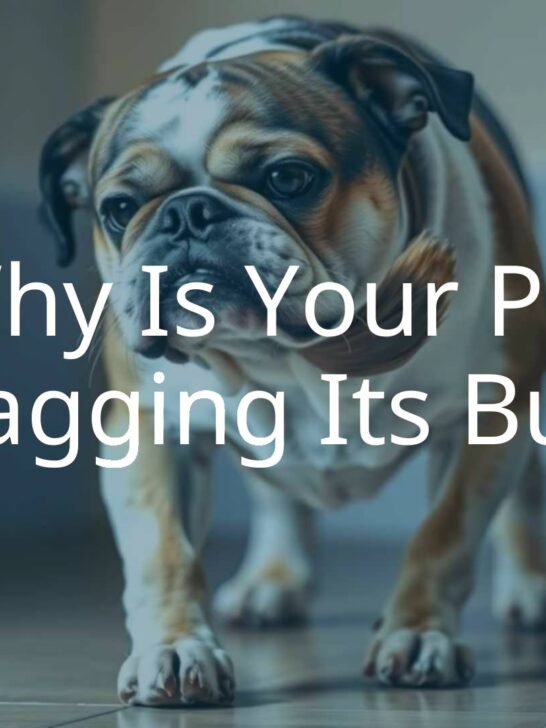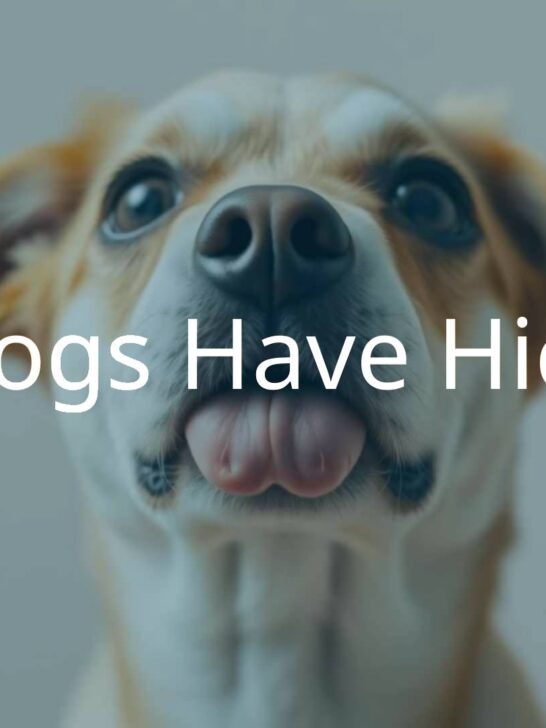Dog Sneezing a Lot: A Comprehensive Guide to Causes, Symptoms, and Treatments
If your dog has started sneezing often and more than usual, you might be asking yourself, “Why is my dog sneezing so much?” While dogs sneeze just like humans, and the occasional sneeze is common, a dog sneezing a lot or in a way that’s different from normal may mean something else is going on. Dogs sneeze to get rid of irritants, discharge, or any foreign matter from their nose, throat, and airway. But if your dog is sneezing all the time, sneezes don’t stop, or you see other worrying signs, it’s a good idea to look closer. This article explains what counts as too much sneezing, some usual and unusual causes, how to spot warning signs, and when you should take your dog to the vet, so you can help keep your dog healthy.

What Counts as Too Much Sneezing in Dogs?
Recognizing how much sneezing is too much is key to knowing if your dog has a problem. Like people, dogs sometimes sneeze because of dust or excitement. A single sneeze after sniffing the ground or a few sneezes during play are not a problem. The important thing is telling what’s normal from what might mean trouble.
Normal Sneezing vs. Concerning Sneezing
Normal sneezing in dogs is usually short and stops on its own. For example, if your dog sniffs some dust, he might sneeze once or twice, then go back to his usual mood. Dogs might also “play sneeze” when they’re happy or excited, letting other dogs or people know it’s all friendly play.
Worrisome sneezing is different. It happens more often, is stronger, goes on longer, or happens with other symptoms, like nose discharge or bleeding. Your dog may not act like himself. This is when sneezing is less about clearing dust and might be caused by something else that needs attention.
How Much Is Too Much?
There’s no exact number for what makes sneezing “too much,” since each dog is different. But if your dog is having sneezing fits many times a day, keeps sneezing for days, or the sneezing gets worse, this is not typical. Pay attention to when and where it happens. If it starts very suddenly or is strong and frequent, see a vet right away. Slower changes or sneezing that builds up slowly may mean an infection or a growth.
Reverse Sneezing: What Does That Look Like?
Reverse sneezing can be alarming if you haven’t seen it before, but it’s different from regular sneezing. Instead of pushing air out, reverse sneezing is sucking air in quickly through the nose, which often sounds like a loud snort or honk. Dogs doing this usually stretch their neck and stand still, breathing in loudly. It looks scary, but it usually isn’t serious and ends in a minute. Excitement, irritation, eating or drinking fast, or even inflammation can start a reverse sneeze.
How To Tell Normal Sneezing from Reverse Sneezing
Regular sneezing is a strong breath out, sometimes mouth open, clearing the nose. Reverse sneezing is a noisy, quick breath in, usually with the mouth closed, sounding more like a snort or honk. If you’re not sure what’s happening, record it to show your vet for a better answer. Calming your dog can also help stop a reverse sneezing fit faster.
Are Some Dogs More Likely to Sneeze a Lot?
Breed Risks: Flat-Faced and Small Breeds
Flat-faced dogs such as Pugs, Boston Terriers, and Bulldogs are more likely to have breathing problems, including extra sneezing. Their noses and airways are shorter and more crowded, which means even small irritants can cause sneezing or snorting. Small dogs, simply because they’re closer to the ground, might sniff up more dust, pollen, or trouble from things like grass.
Age: Puppies and Older Dogs
Puppies sneeze more because they’re curious and their immune systems aren’t fully built up. They put their noses everywhere, so it’s easy to breathe in something that bothers them. Extra sneezing in puppies with other symptoms should be checked by a vet.
Older dogs might sneeze more because their immune defenses get weaker or because they may develop nose tumors or dental troubles. Gradual sneezing, especially with other changes, in older dogs needs a vet exam to look for hidden causes.
Why Is My Dog Sneezing So Much?
Dogs start sneezing a lot for all kinds of reasons-some simple, some more complicated. Figuring out why is important for helping them feel better.
Common Causes of Excessive Sneezing in Dogs
| Cause | Description | Other Signs |
|---|---|---|
| Allergies | Dust, pollen, mold, household products, or sometimes food triggers irritation and sneezing. | Watery eyes, itching, licking, or scratching |
| Upper Respiratory Infection | Bacteria, viruses, or fungi can infect the nose or sinuses. | Thick, yellow, or green discharge; cough or fever |
| Foreign Object | Grass, seeds, or small items get stuck in the nose. | Sudden sneezing, pawing at the nose, discomfort |
| Nasal Mites | Microscopic parasites inside the nose. | Bloody or thick discharge, itching, head shaking |
| Tumors or Growths | Polyps or cancer may grow inside the nose, especially in older dogs. | Long-term sneezing, changes in nose shape, bleeding |
| Dental Disease | Rotten, infected, or bad teeth can irritate the nose through the bone. | Bad breath, pain, swelling |
| Other causes | Diseases affecting blood clotting or high blood pressure can lead to nosebleeds and sneezing. | Bleeding elsewhere, tiredness, black stools |
Are Allergies Causing the Sneezing?
Dogs can get allergies from things in their environment, like pollen or household sprays, or even from foods. Environmental allergies tend to cause sneezing, runny eyes, itchiness or licking. Food allergies usually cause skin problems, but sometimes they can also make dogs sneeze right after eating.
Could It Be an Infection?
Bacteria and viruses can infect a dog’s nose and cause sneezing with colored discharge. Fungal infections can be more serious and may show bloody discharge. Veterinary tests help find the exact bug and guide treatment.
Did Something Get Stuck?
Blades of grass, seeds, or tiny items can stick inside your dog’s nose and cause sudden, hard sneezing fits and discomfort. This needs fast vet care to remove it.
What Else May Be Going On?
Nasal mites, tumors, or serious medical conditions may cause frequent sneezing, especially if you see thick or bloody discharge, nose swelling, or trouble breathing. Dental issues may also spread into the nasal area and cause trouble. Older dogs and certain breeds are more likely to have some of these problems.
How Do I Tell Why My Dog Is Sneezing?
Watching your dog closely can give important clues. Keep notes on these things:
- Nose Discharge:
- Clear: Likely mild irritation/allergy.
- Yellow or green: Likely infection.
- Bloody: May be something stuck, a tumor, or bleeding problem.
- From one side: Usually objects or masses on that side.
- Both sides: Usually allergies or infections.
- Other Respiratory Signs:
- Coughing: Could be infection.
- Wheezing: Could be a lower airway or lung problem.
- When Sneezing Happens:
- Outdoors/after walks: Allergies or something in the nose.
- After cleaning or candles: Reaction to household products.
- During certain seasons: Possible seasonal allergies.
When Is Dog Sneezing a Lot a Problem?
If your dog’s sneezing is happening all the time, is very strong, or comes with other symptoms, you should talk to your vet. Here are signs not to ignore:
- Frequent, harsh, or constant sneezing
- Discharge that is thick, colored, or bloody
- Pain, swelling, or odd changes in the nose/face
- Lethargy or eating less
- Trouble breathing, wheezing, gasping
- Fever or acting sick
- Black stools, pale gums, or bleeding elsewhere
How Do Vets Find Out Why My Dog Is Sneezing So Much?
The vet will start by asking detailed questions about your dog, your house, and what you’ve seen. A full physical exam follows, focused on the nose, face, throat, and listening to breathing. Depending on what they find, your vet may suggest:
- Nose Swabs or Cultures: Take a sample from the nose to check for infection.
- Blood Tests: Check for infection, inflammation, or bleeding problems.
- Imaging:
- X-rays: To look at nose bones and spaces.
- CT or MRI scan: Very detailed look inside the nose (often under anesthesia).
- Rhinoscopy: Use a tiny camera in the nasal passage (under anesthesia) to look for blockages, foreign bodies, or growths.
- Nasal Flush: Flush saline through the nose (under anesthesia) to collect debris and samples.
- Dental Exam: If dental disease may be the cause, under sedation, the mouth and teeth are checked for abscesses or root problems.
How Is Excessive Sneezing in Dogs Treated?
Treatment by a Vet
- Antibiotics: For bacterial infections
- Antifungal medications: For fungal infections, sometimes in the nose, other times by mouth
- Antiparasitic drugs: For nasal mites
- Allergy medications: Antihistamines or steroids for allergies and inflammation
- Removing foreign bodies: Under sedation/anesthesia
- Surgery: For polyps or tumors where possible
- Dental procedures: If dental disease is found
- Advanced care: Tumors may need referral for radiation or chemo
What You Can Do at Home
- Humidifier: Runs in your dog’s sleeping room to help breathing.
- Steam: Take your dog into the bathroom while a hot shower runs for a few minutes; this can loosen mucus.
- Gently clean the nose: Use a damp cloth to wipe away any discharge.
- Diet: Offer tasty, smelly food if appetite is affected since the nose is blocked.
- General health: Immune supplements may support health, but check with a vet first.
These home steps may help mild cases or add comfort, but they will not solve infections, tumors, or lodged items by themselves. Always get a vet’s advice if you are worried.
Warning About Over-the-Counter Medicines
Never give your dog human medicine, including cold or allergy drugs, unless your vet says so. Many are dangerous or deadly to dogs. Always ask your vet for safe options.
How to Prevent Dogs from Sneezing Too Much
Reduce Irritants in Their Surroundings
- Keep windows closed during allergy seasons
- Use air cleaners or purifiers indoors
- Vacuum your home and wash bedding often
- Avoid scented candles, air sprays, and chemical cleaners
- Don’t smoke near your dog
Regular Health Checks and Clean-Up
- Yearly vet visits for full check-ups-these catch problems like bad teeth or early infections
- Stay current on vaccines for respiratory diseases
- Brush dogs with longer hair to keep pollen and dirt to a minimum
- Check your dog’s paws and fur for seeds or grass after walks, especially for certain breeds
- Stay up to date with worming treatment as advised
Frequently Asked Questions About Dogs Sneezing Lots
Why do dogs sneeze when they play?
Dogs often sneeze during play because they’re excited and happy. It helps show others that their playful actions are friendly and not aggressive.
Why does my dog sneeze when I kiss them?
Sneezing after kisses may mean your dog feels excited, or maybe something from your clothes or skin (like dust or pollen) got near their nose and made them sneeze.
Should I worry if my puppy sneezes a lot?
A little sneezing is normal in puppies. But if your puppy sneezes a lot or has any extra symptoms like runny nose, eye discharge, cough, tiredness, or stops eating, take them to the vet right away.


















